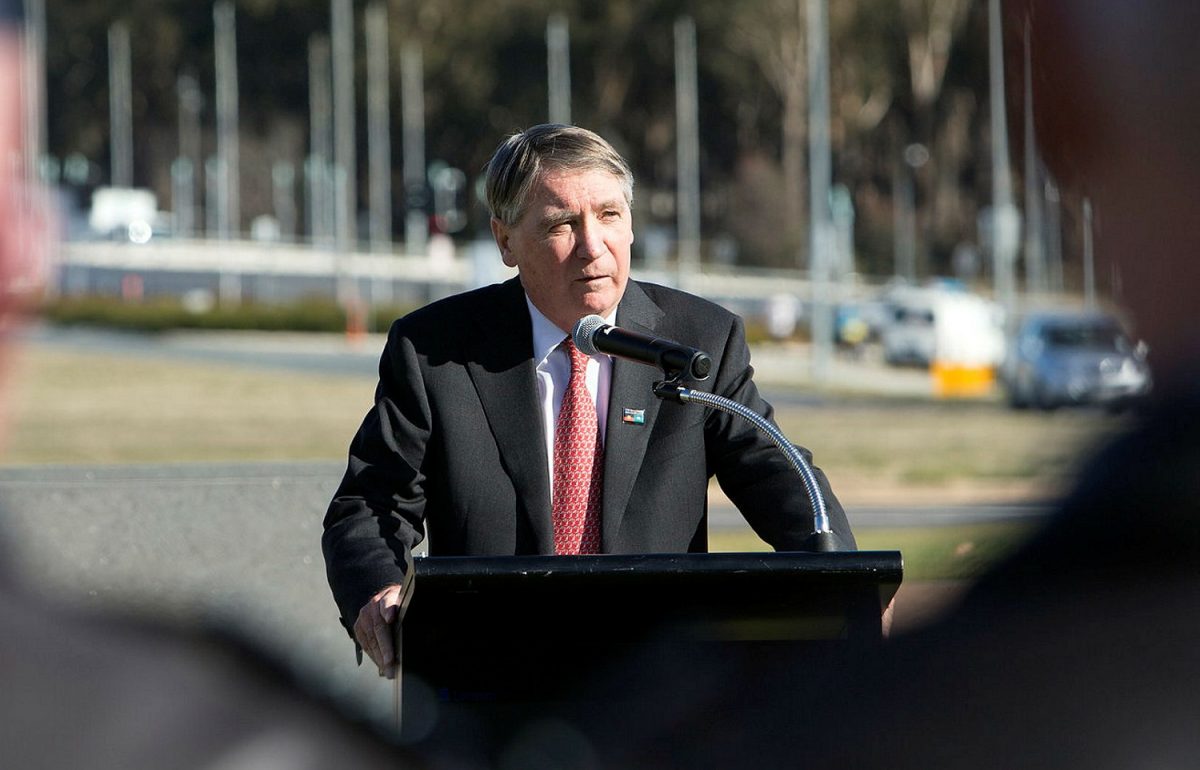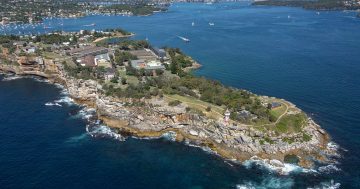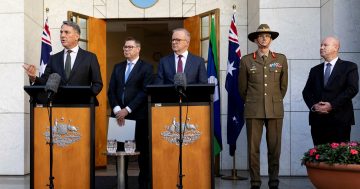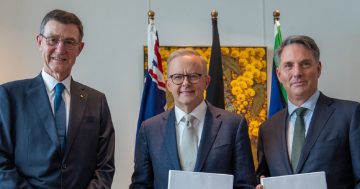
Former Defence Secretary and now member of the DSR Advisory Panel, Dennis Richardson. Photo: ADF.
The Federal Government has announced it has established an external advisory panel to oversee the implementation of the recommendations from the Defence Strategic Review (DSR).
Released in April, the DSR is a comprehensive review of the Australian Defence Force (ADF) and its capabilities, including whether it is suitably equipped and manned to counter looming threats in the Indo-Pacific region. The government has accepted all but two recommendations made by the architects of the DSR – former Defence minister Professor Stephen Smith and former Chief of Defence Force, Sir Angus Houston.
The DSR recommended the establishment of the advisory panel to provide an independent assessment of Defence’s progress compared with the government’s direction and intent of the recommendations. It will report biannually to government.
The government has announced the appointment of former Defence secretary Dennis Richardson, former secretary of the Department of Finance Rosemary Huxtable, and former deputy secretary of the Department of Foreign Affairs and Trade Richard Maude to the panel. It will be co-chaired by Professor Smith and Sir Angus Houston.
“The appointment of the expert advisory panel reflects the government’s commitment to the implementation of the Defence Strategic Review,” Defence Minister Richard Marles said in a 29 May release.
“Realising the review’s ambition requires major reform, it is appropriate that such significant reform is accompanied by an independent assessment of progress and challenges as we undertake this important task.”
The appointment of Mr Richardson and the panel’s co-chairs would seem, on face value at least, to go against the stated goals of the DSR to not only re-shape the ADF, but to put in place new procedures and implement a new culture capable of bringing capabilities into service faster.
At various points and in various roles over the past decade or more, all three were in charge of the ADF during a period that Defence’s cumbersome bureaucracy saw some projects atrophy and others fail, while the department’s culture – both in uniform and the Australian Public Service – saw little if any improvement.
During questioning of senior Defence officials by the Senate’s Foreign Affairs, Defence and Trade Committee on 31 May, Greens Senator David Shoebridge pointedly questioned whether Mr Richardson was an appropriate appointee to the DSR advisory panel.
“One of the measures the government has adopted for a DSR advisory board to ensure the recommendations and the changes… will help ensure cultural change and structural change will be put in place,” he said.
“But the former secretary of Defence (Mr) Richardson was secretary when, that we now acknowledge, the disastrous decision to spend billions and billions of dollars of public money on the French submarine deal was put in place. He championed it inside the department and out, and that ended up being $3.4 billion being burnt.”
Current Defence Secretary Greg Moriarty responded: “The cancellation of the Attack (class) submarine was undertaken by the previous government, because it acknowledged that our strategic circumstances had changed and a different capability platform was required.
“The government’s view is that Mr Richardson is a very experienced former secretary of this department who has a wealth of experience in a variety of senior roles and he can bring some very considerable skills oversighting the work of the DSR implementation task force and the broader work of the department.”
Not to be deterred, Senator Shoebridge rhetorically asked: “But wasn’t Mr Richardson also the secretary who pulled the BAE frigate tender put of the dustbin and whacked it on the shortlist for a project that’s now blown out to $45 billion and counting, that’s 18 months delays?
“Is it the same Mr Richardson who was the secretary when all of these problems on acquisition, on capability delivery, had their genesis?” he added. “Is it the same Mr Richardson who was in charge of the department when it all went off in the wrong direction…who is going to oversee the DSR?”
At this point, Tom Hamilton, Defence’s Deputy Secretary for the DSR interjected. “The process for proposing names included advice provided by the department, but was a matter for government decision.
“We considered suitable candidates who would bring expertise to oversight government direction. Those names were considered by government, and they were announced by the government.”





















